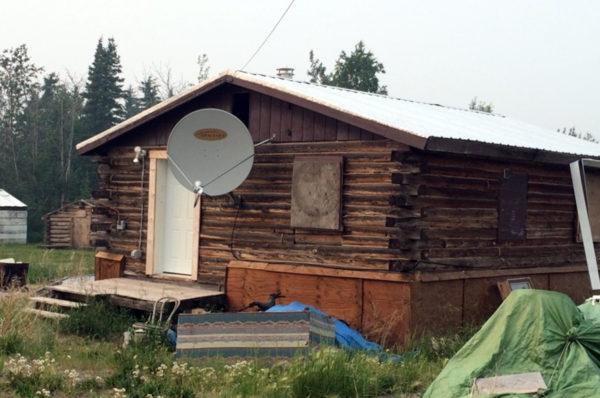
- Details
- By Native News Online Staff
WASHINGTON — As a means to combat the lack of broadband on tribal lands, bipartisan legislation was introduced last week by Rep. Deb Haaland (D-NM-01), Tom Cole (R-OK-04) and Rep. Ruben Gallego (R-AZ-07).
The legislation — called Bridging the Tribal Digital Divide Act — would accelerate the deployment of broadband services to Native communities and bridge the digital divide facing Native communities.The bill would expedite the deployment of affordable broadband service on Tribal lands by coordinating and improving the effectiveness of federal resources.
In 2018, the Federal Communications Commission (FCC) estimated that 35 percent of Americans living on Tribal lands lacked access to broadband services, compared to eight percent of all Americans. This disparity represents a 27-point gap compared to non-tribal rural areas. The FCC further reports less than half of households on Tribal lands have access to fixed broadband service.
“Access to the internet opens up opportunities for young people and economic growth for entire communities, but Native American communities are the most digitally disconnected in the country,” said Rep. Haaland, co-chair of the Native American Caucus. “Lack of internet access and broadband leads to disparities in student achievement, health outcomes, economic opportunities, and even violence. This broadband bill will deploy broadband so that our communities aren’t left behind in the digital age.”
“In order for tribal governments to reach their highest potential, they must have the ability to utilize the same technologies available to the rest of rural America. By advancing the distribution of affordable broadband service on tribal lands, we can indeed bridge the digital divide and improve tribal economic development and sovereignty,” said Rep. Cole, co-chair of the Native American Caucus.
Adequate access to broadband is essential for strong Tribal economic development and the exercise of Tribal sovereignty, according to Rep. Gallego, who serves as chairman of the Subcommittee for Indigenous Peoples.
“We must take aggressive steps to close the digital divide between Native American and other rural communities by better facilitating the deployment of broadband across Indian Country,” Rep. Gallego said. “That is why I am proud to introduce H.R. 5850, the Bridging the Tribal Digital Divide Act, alongside Representatives Haaland and Cole. H.R. 5850 is the kind of bold plan we need to connect Indian Country and ensure our trust responsibility is upheld.”
The Bridging the Tribal Digital Divide Act of 2020 will:
- Establish the Tribal Broadband Interagency Working Group to improve coordination across federal broadband programs and reduce deployment barriers;
- Require that technical assistance be provided to interested, underserved Native communities to develop a broadband deployment plan;
- Streamline the application process for federal grants to support the deployment of broadband services on Tribal lands;
- Establish a Tribal Broadband Deployment Advisory Committee;
- Sets aside FCC and USDA funds for the benefit of broadband deployment on Tribal lands; and
- Establish the Tribal Broadband Right-of-Way Pilot Program.
Other original cosponsors of the bill are Gwen Moore (D-WI), Jared Huffman (D-CA), Derek Kilmer (D-WA), Ben Ray Luján (D-NM), and Ed Case (D-HI).
More Stories Like This
Native News Weekly (August 25, 2024): D.C. BriefsUS Presidents in Their Own Words Concerning American Indians
Native News Weekly (December 14, 2025): D.C. Briefs
Wounded Knee Massacre Site Protection Bill Passes Congress
Two Murdered on Colville Indian Reservation
Help us defend tribal sovereignty.
At Native News Online, our mission is rooted in telling the stories that strengthen sovereignty and uplift Indigenous voices — not just at year’s end, but every single day.
Because of your generosity last year, we were able to keep our reporters on the ground in tribal communities, at national gatherings and in the halls of Congress — covering the issues that matter most to Indian Country: sovereignty, culture, education, health and economic opportunity.
That support sustained us through a tough year in 2025. Now, as we look to the year ahead, we need your help right now to ensure warrior journalism remains strong — reporting that defends tribal sovereignty, amplifies Native truth, and holds power accountable.
 The stakes couldn't be higher. Your support keeps Native voices heard, Native stories told and Native sovereignty defended.
The stakes couldn't be higher. Your support keeps Native voices heard, Native stories told and Native sovereignty defended.
Stand with Warrior Journalism today.
Levi Rickert (Potawatomi), Editor & Publisher

